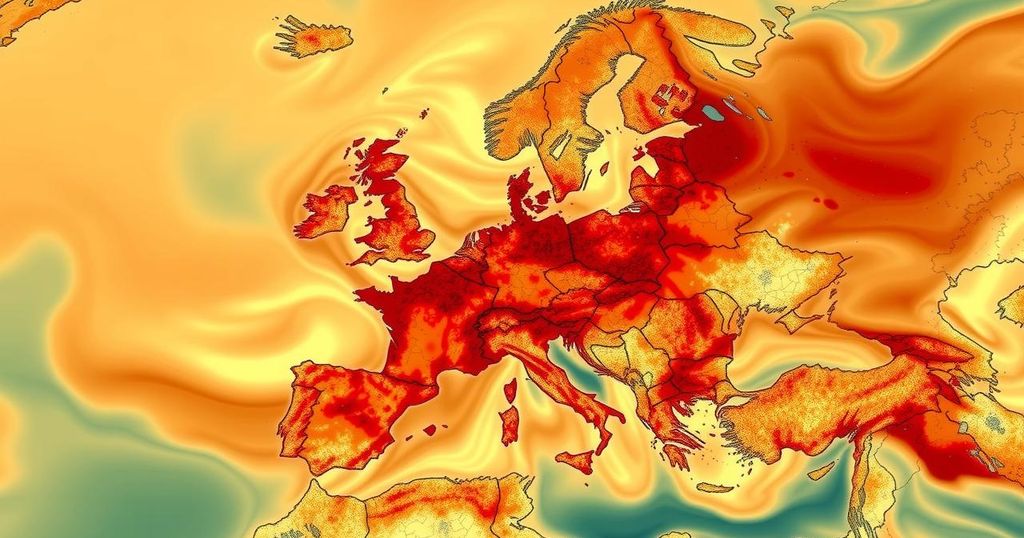European Union scientists predict that 2024 will become the hottest year recorded, with average global temperatures expected to exceed pre-industrial levels by 1.5 degrees Celsius. Extreme weather events have been rampant, resulting in significant fatalities and environmental damage. Despite governmental pledges to cut emissions, CO2 levels are set to reach new highs. A potential La Niña event could lead to temporary cooling but will not change the overarching trend of climate change.
According to European Union scientists from the Copernicus Climate Change Service (C3S), 2024 is projected to be the hottest year on record, with global temperatures expected to remain exceptionally high well into early 2025. Confirming data from January to November indicates that this year marks the first instance where average global temperatures will exceed 1.5 degrees Celsius over the pre-industrial period of 1850-1900. The previous record was set in 2023.
The year has been plagued by extreme weather events globally, such as severe drought affecting regions in Italy and South America, destructive floods in Nepal, Sudan, and parts of Europe, along with heatwaves in Mexico, Mali, and Saudi Arabia that resulted in numerous fatalities. Additionally, powerful cyclones have impacted areas in the United States and the Philippines, all of which bear the recognizable impacts of human-induced climate change. Notably, November 2024 was recorded as the second-warmest November since records began.
A leading climate researcher at C3S, Julien Nicolas, expressed that global temperatures will remain elevated for the foreseeable future. He pointed out, “We’re still in near-record-high territory for global temperatures, and that’s likely to stay at least for the next few months,” signaling the ongoing challenges posed by climate change.
The primary driver of climate change remains carbon dioxide emissions from fossil fuel combustion. While many governments have committed to achieving net-zero emissions, the reality is that global CO2 emissions are expected to reach unprecedented levels this year. In light of this, scientists are monitoring the potential formation of the La Niña weather pattern, which could momentarily cool global temperatures in 2025, yet it will not alter the broader trend of rising temperatures caused by greenhouse gas emissions.
Senior lecturer Friederike Otto at Imperial College London elucidated that even if a La Niña event occurs, it does not guarantee a return to “safe” or “normal” temperature levels, as the world would still endure perilous weather patterns.
The article highlights alarmingly high global temperatures for the year 2024, as determined by the Copernicus Climate Change Service (C3S) of the European Union. This scientific assessment follows significant climate discussions, although many poorer nations deem these efforts insufficient in addressing climate-related crises. The discourse incorporates the toll of various natural disasters attributed to climate change and emphasizes the continuing rise in global carbon emissions despite formal commitments to mitigate these effects. It also speculates on future weather patterns and their potential impact on climate trends.
In summary, 2024 is anticipated to be the hottest year on record, surpassing previous highs with profound implications for global weather patterns. Extreme weather events attributable to climate change have already occurred worldwide, resulting in severe human and ecological consequences. Despite pledges to reduce carbon emissions, projections indicate that CO2 emissions will reach record levels. Moreover, while the La Niña weather pattern may introduce temporary cooling, it will not reverse the alarming trajectory of global warming caused by anthropogenic factors.
Original Source: www.bangkokpost.com







